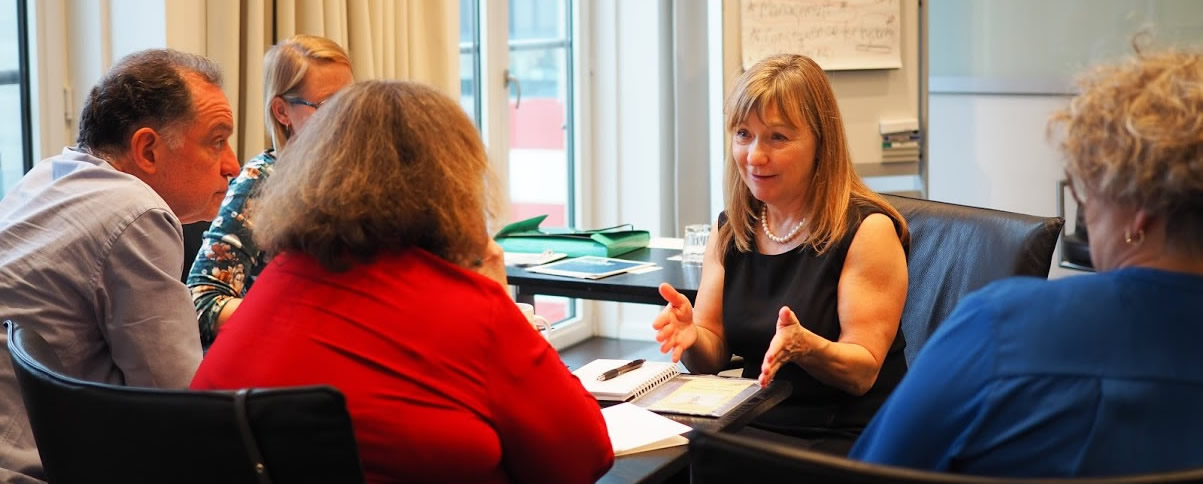Workshops

Workshops
Anxiety Management
Anxiety is a sense of feeling stressed, worried, fearful, panicky, restless, escalated heartbeat, breathing difficulties, throat tightening, tingling in the hands/feet/extremities, sweating, or even a total meltdown/panic attack. Anxiety is the most common mental health issue in the world. Despite the pain associated with this issue, it is quite treatable through psychological strategies. Participants will learn the biology of anxiety and proven strategies to conquer symptoms, change thoughts that precipitate anxiety and how to engage in more effective behavior.
Depression
A look at what depression is, how it develops, and how we can recover from it.
It Takes Two to Tango
Review the contribution of work and personal stress and lifestyle to the development of Coronary Heart Disease and the proven methods of managing these factors.
Reading Between the Lines
This workshop explore mental health concepts: what mental health is, how to identify symptoms of emerging mental health issues, what treatments work for mental health issues, and establishing positive mental health lifestyles.
How to Grow Resilient
Invictus:
I am the Master of my Fate,
I am the Captain of my Soul:
Resilience is the ability to work through adversity and to come through it unharmed or even better for the experience. Resilience means facing life’s difficulties with courage and patience – refusing to give up. It is the quality of character that allows a person or group of people rebound from misfortune, hardships and traumas. We are faced with challenges every day that can, if we let them, harm our mental health. While there is no magic formula for resilience, effective ways of increasing resilience do exist. No matter what level of resilience has developed throughout our lives, resilience can be grown. This workshop presents the current state of knowledge about becoming and staying resilient. Participants will assess their own level of resilience and learn about strategies that increase personal fortitude.
Mental Health: A User’s Guide to a Healthy Mind
Although there is still much to understand about consciousness and the human experience of the world around us, the mind is not as mysterious as you may think. This workshop explores what mental health is … and is not. Participants will learn how to know whether they are mentally healthy and how to identify early warning signs of deteriorating mental health. The workshop will review the most common mental issues that Canadians experience as well as some of the lesser ones. Participants will learn about injury to mental health, how to identify personal and workplace hazards to mental health and how to reduce these risks. Evidence based techniques that treat and increase mental health will be presented. Participants will also learn how to use some brief mental health first aid, how to encourage someone to get help and when to act if the person will not.
Self-Care in Tough Times
There are times in life and at work that stretch our coping capabilities leading to the experience of stress. When we are in challenging and demanding situations we often get caught up in the urgency of the moment and self-care often takes a backseat. Practicing self-care not only helps us feel better. It also helps us function at our best. It replenishes our reserves, boosts our energy and provides clarity of thought and decision making. We’re able to do everything from making smarter decisions, working safely, to helping others. This workshop reviews important strategies to keep us healthy and safe during challenging, demanding and tough times. It presents ideas on how to remain focused and perceptive as well as how to engage in repair so that ongoing capacity is maintained.
Team Building using the Myers Briggs Type Indicator
A full-day workshop that helps participants understand how personality strengths and challenge influence team cohesiveness and creativity and helps participants to understand how to minimize conflict related to personality differences.
The Psychology of Safety
As far as safety equipment goes, the one that fails the most is the human equipment. For example, it has been demonstrated that nearly 80 percent of vehicle crashes and 65% near-crashes involved some form of driver inattention. Fatigue has been estimated to be the key factor in as many as 41% of accidental injuries and deaths caused by human error.
How can this be if our minds are the most powerful and sophisticated computing device imaginable? Despite our immense capacity, humans are prone to error stemming from attention, perception, and how we think, believe, what motivates us, and depleted willpower. We are also prone to error if we don’t feed our judgment systems properly or we overload them and work beyond our capacity. Add to that the tendency to over-estimate or under estimate events, we can be a walking hazard.
This presentation takes a look at how our central processing unit (brain) processes perceptions and thoughts, accesses memory and produces (often distorted) decisions. The presentation also provides tips and techniques to avoid unsafe ‘mind traps’ or mind safety hazards and looks at how we can become more safety conscious.
